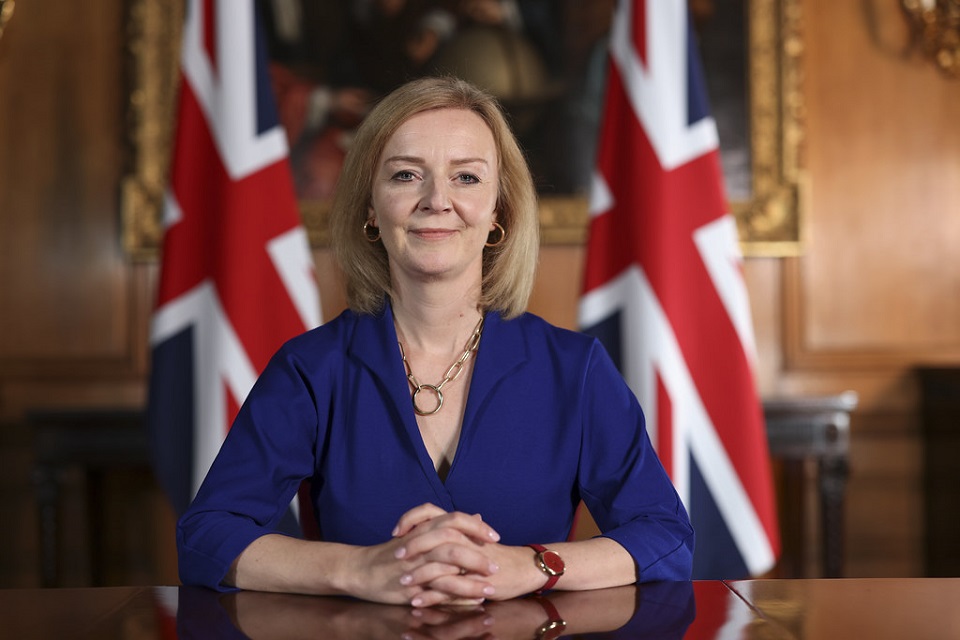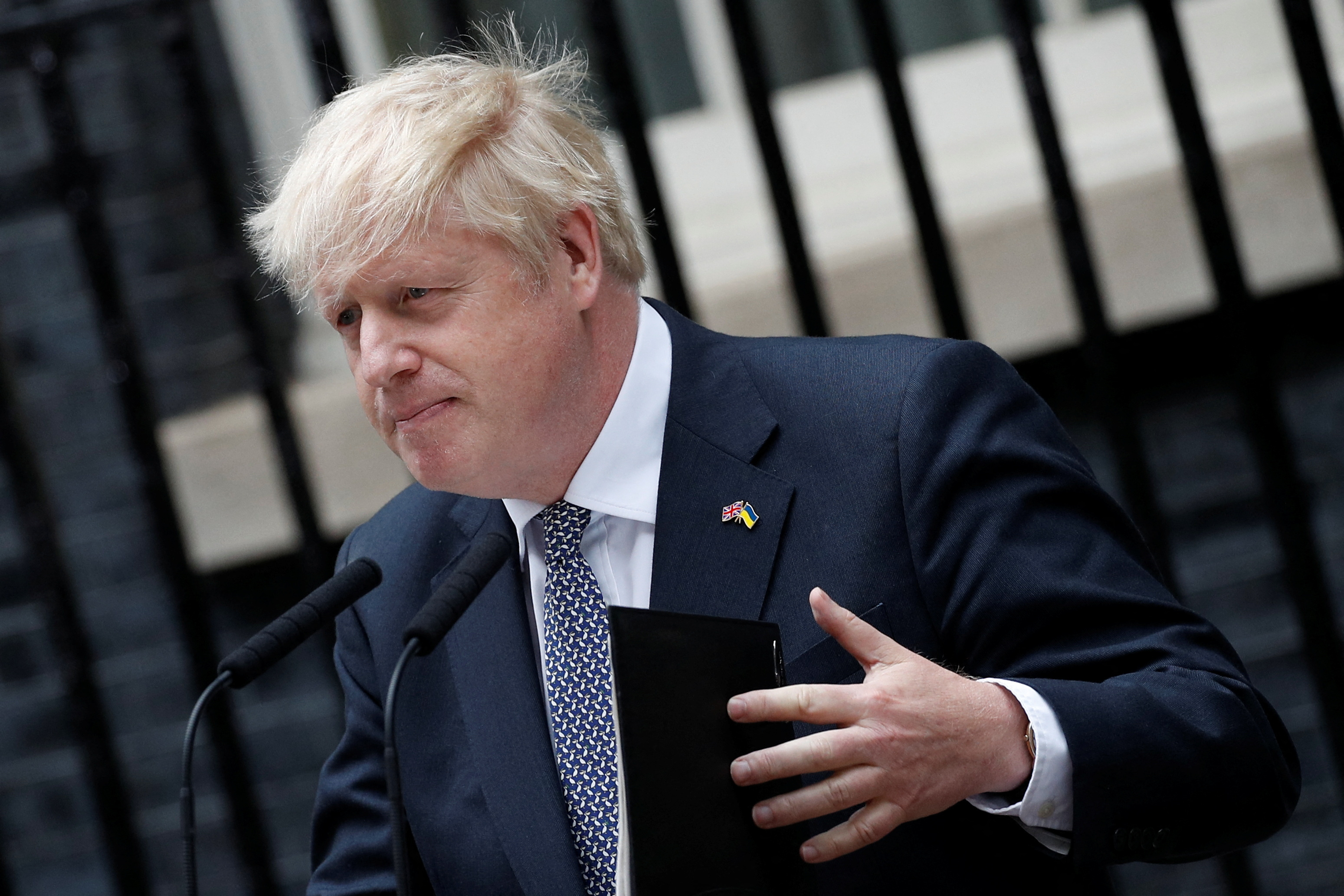Boris Johnson is giving over an economic ‘crisis’ to UK new leader.

Boris Johnson is giving over an economic ‘crisis’ to UK new leader.
Organizations and homes for the duration of the UK are issuing warnings that they might not live to tell the tale of the iciness without assistance from the authorities.
That presents Liz Truss, the next top minister, with enormous problems. The UK has been laid low with a leadership void for months as the country slides in the direction of a recession and a humanitarian catastrophe brought on with the aid of skyrocketing electricity prices.
The forecast for growth has deteriorated on account that Boris Johnson declared he would depart the government in July. As the value of food and gas rises, annual inflation is currently around 10%. Thousands of people who work in ports, railways, and mailrooms have gone on strike because of frustration with the rising cost of living. The British pound has just had its worst month since the instant post-2016 periodBrexit referendum, falling to its lowest level in more than two years versus the US dollar.
The chairman of the UK Federation of Small Companies, Martin McTague, remarked, “It is sincerely one hit after the other.” I’m sorry, however, I don’t have any high-quality news. “Before things get better, they can get plenty worse.”
The financial institution of Britain predicts that because of the oil situation worsening, inflation will hit 13%. If natural gas expenses “stay accelerated at gift degrees,” in step with Goldman Sachs and Citigroup, UK inflation should peak at 22% in the first quarter of 2023. Truss, who was formerly the foreign secretary, is now under stress to claim a direct intervention as the fourth Conservative chief of the kingdom in a decade.
The cost of strength is the most pressing problem she has to deal with because it would cause a wave of company shutdowns and force thousands and thousands of human beings to choose between heating their homes and putting food on the table in this wintry weather. If nothing is done soon, professionals warn, increasingly more people will die of hunger. The “extreme issue of power” will be the difficulty of an announcement, Truss promised the BBC on Sunday. Within a month, a more complete financial plan could be released, she stated.
Jonathan Neame, who oversees Shepherd Neame, Britain’s oldest brewer, stated: “All of us are awaiting that there could be a fast and definite announcement that places this problem to rest or, at a minimum, offers them with reality.”
A “major disaster” in energy
Starting in October, home energy costs will increase by 80% to an average of £3,549 ($4,106) each year. According to analysts, the household price ceiling might increase to over £5,000 ($5,785) in January and over £6,000 ($6,942) in April. The consumption spike that followed the COVID-19 freeze is now fading as people are forced to reevaluate their spending plans. The UK economy will enter a recession in the upcoming months, according to the Bank of England.
According to Ben Zaranko, a senior research economist at the Institute for Fiscal Studies, “the major difficulty that the energy price spike faces is that households that consume a lot of energy—and in particular poorer households—are going to struggle to make ends meet.” It will need pretty significant budget reductions in other areas.
Name, whose portfolio spans roughly 300 pubs in southern England, claimed that company owners are in a panic. If they can locate suppliers at all, they are receiving quotes for year-ahead utility bills that are absurdly high. The owner of the Greene King pub chain, Nick Mackenzie, revealed that one of its client locations’ energy expenditures had increased by £33,000 ($38,167) annually.
Many firms find it extremely difficult, especially those that entered COVID in a vulnerable situation, according to McTague. They are currently coping with another calamity that comes along just once in a lifetime. The British pound’s decline might make matters worse by increasing the cost of importing energy and other products and raising inflation.
Conflicting crises
It’s hardly the only factor contributing to company owners’ and investors’ rising anxiety. Job openings decreased between May and July, although they are still 60% higher than they were before the outbreak. Since the UK decided to leave the European Union, it has been particularly difficult to find employees to fill unfilled positions in the United Kingdom. According to the Office for National Statistics, there were approximately 317,000 fewer EU citizens residing in the UK in 2021 than there were in 2019.
Trade is also being disrupted by Brexit, notably with the European Union, which is the UK’s main commercial partner. The Office for Budget Responsibility estimates that exports and imports will be around 15% lower over time than they would have been had the United Kingdom remained in the EU.
According to Dean Turner, the UK economist at UBS, it’s up to the future prime minister to attempt to maximize the country’s position without causing more turbulence. However, a crucial provision of the Brexit agreement Johnson made with the European Union is still being fought against by conservative British politicians, raising the possibility of a trade conflict with the UK’s largest export market.
“Brexit has occurred. We all have our perspectives on it, but it is what it is, “Turner said.” But we must work with it to improve it for us, and I find it difficult to believe that there is any momentum in that direction.
No easy answers
Truss, who takes office this week, has promised to cut taxes to stimulate the economy. However, many economists worry that this strategy will fail to put money in the wallets of those who need it the most and would instead fuel inflation and harm the government’s already vulnerable finances. According to Jonathan Marshall, senior economist at the Resolution Foundation, “the advantages of decreasing [taxes] would mostly accrue to the individuals who pay more tax, which is often those with more money.”
The state will have to spend a lot of money in winter to deal with the energy crisis, so focused actions will be required to reduce waste. According to analysts at the Institute for Government, freezing gas and electricity costs over the next two winters may cost the government over £100 billion ($116 billion).
Gas and energy are costly, Marshall said. “That needs to be paid for to prevent people from freezing in their homes.” However, for those who can afford it, the state is not required to cover the cost. Additionally, it is unclear how the Truss administration would pay for significant economic intervention, particularly if reducing taxes and, by extension, government income remains the top focus.
The UK government took out large loans to help citizens during lockdowns due to the coronavirus. The country’s debts currently represent almost all of its GDP. It wasn’t a big deal when interest rates were at their lowest and it was cheap to get money. But that is no longer the case now. To control inflation, the Bank of England aggressively raised interest rates. The cost of the government’s service of its debt will rise as a result. The UK’s vulnerability is heightened by the huge number of inflation-linked bonds it has issued.
As the next PM, Liz Truss inherits a UK economy that is in crisis.
INFLATION
Including an annual inflation rate of 10.1% in July, Britain had the highest rate among the Group of Seven major countries. Forecasters anticipate this to rise even further; according to Goldman Sachs, if gas prices do not decrease, they may reach 20 per cent in the next year. A large reliance on imported gas and a rapidly depreciating currency account for part of Britain’s inflation issues. The pound is doing somewhat worse than the euro over the past three months, and imports of energy priced in dollars have become significantly more expensive.
IMPOSSIBLE LABOR MARKET
The COVID-19 epidemic and a tight labor market are both driving up pay in some circumstances, which is why the Bank of England is concerned about domestically produced inflation pressure. Although the number of people reported as being inactive due to long-term illness reached a 19-year high of 2.39 million in June, up nearly 300,000 since before the epidemic, official figures indicate 49,000 fewer EU-born employees in Britain than in mid-2019.
However, there are some indications that the need for labour is slowing down. The number of open positions has started to decline after reaching a record high of 1.299 million in the three months ending in May, while the unemployment rate increased in June for the first time in 17 months.
The stimulus for tax-cut expenditures
Truss has pledged to reduce taxes, starting with the suspension of so-called “green charges” on electricity bills and the reversal of a rise in social security contributions. Economic experts have cautioned that a significant increase in consumer spending might make Britain’s inflation situation worse.
edited and proofread by nikita sharma




